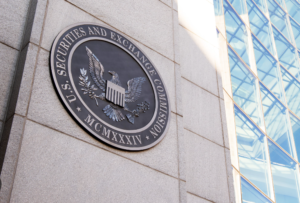$DIA $SPY $BTC
#USJobs #StockMarket #LaborMarket #EconomicGrowth #FederalReserve #Unemployment #CryptoMarket #InterestRates #USEconomy #JobRebound #MarketAnalysis #Recession
The performance of the U.S. jobs market is critical in determining the direction of both equity and cryptocurrency markets, as well as the broader economy. In recent months, there has been mounting data suggesting a slowing labor market. Analysts have pointed to fewer job openings, softened wage growth, and a modest uptick in unemployment rates as signs that the robust post-pandemic job recovery may be losing traction. The Federal Reserve has maintained its stance on managing inflation by raising interest rates, a strategy that inadvertently places additional pressure on job growth. As investors stare down another week of key economic data releases, the central question remains whether the tightening labor market could signal broader concerns about a potential recession. Markets will be closely monitoring these outcomes, as any significant changes could trigger volatility.
A rebound in the U.S. jobs market would likely be received positively by the stock market, particularly indexes like the Dow Jones Industrial Average ($DIA) and S&P 500 Index ($SPY), which thrive on strong economic data. Historically, a healthy labor market fosters consumer spending, driving growth in sectors such as retail, technology, and consumer discretionary goods. Conversely, should job market strength falter further, fears of an economic downturn may grow, potentially dampening investor sentiment. Cryptocurrencies like Bitcoin ($BTC), which have often moved independently of traditional economic indicators, provide an alternative narrative. However, even these digital assets have recently shown sensitivity to macroeconomic data, as investors tie monetary policy expectations to the broader financial ecosystem.
The Federal Reserve’s interest rate policy also plays a vital role in shaping the employment landscape. Higher borrowing costs tend to slow business expansion, discouraging companies from hiring aggressively. In this context, market participants will scrutinize this week’s data on initial jobless claims and payroll reports to gauge whether rate hikes have softened the economy too much or just enough to tame inflation without disrupting employment. A steady or rebounding labor market would enable the Fed to maintain its current trajectory, while a sharp contraction would pressure policymakers to reconsider their rate outlook. This balancing act between inflation control and economic stability remains a pivotal storyline for traders in both stock and cryptocurrency markets.
Looking ahead, the jobs data will likely carry significant weight as investors recalibrate their financial strategies. A positive surprise on the employment front may catalyze risk-on sentiment, boosting equities, while disappointing labor data could steepen the flight to safe-haven assets like bonds or gold. Beyond the immediate market impact, the health of the U.S. employment sector has profound implications for fiscal policy, consumer confidence, and global growth. As the week unfolds, observers will keep a keen eye on whether the labor market’s trajectory aligns with the Federal Reserve’s soft-landing narrative or whether cracks begin to form, intensifying recession whispers.











Comments are closed.